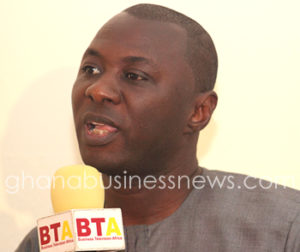Energy Transition: developing countries need home grown narratives – Dr Amin

Ghana and the rest of developing countries need not mimic the approach of the west by phasing out fossil fuel but must develop a home-grown narrative in their energy transition agenda.
Dr. Mohammed Amin Adam, the Deputy Minister of Energy, who made the suggestion, said tagging along the planned transition of fossil to renewable energy by the West would leave its hydrocarbon resource untapped and pose challenges to the economy of developing countries including revenue and job losses.
Countries that are parties to the tenants of two international agreements, the Sustainable Development Goals and Paris Agreement, are required to transition to renewable energy from fossil fuel, which is considered the major contributor of carbon dioxide to the atmosphere which causes warming.
Renewable energy is a type of energy that that are constantly replenished, including solar, wind, geothermal, and hydroelectric power.
Dr Adam was speaking at the launch of Think Energy 2021, a 3-day expo for energy service providers and products to be organized by African Global Response Energy Environment (AGREE), in partnership with the Ministry of Energy, on November 25, 2021.
The event will be on the theme, “Achieving Sustainable Development Seven and 13, Think Energy, act Global, start Local”.
The Deputy Minister said, “Energy transition did not start now. We decided to transition from coal to oil and gas and now to renewable but by 2030 the projections of global energy mix shows that coal will still be about 26 per cent of global energy mix
“We still need 28 per cent of oil and 23 per cent of gas for the global energy mix in 2030. So, where is the transition and this is why I want us to be very careful.
“Energy transition can be a curse because such transition will be very disruptive and countries like ours which contribute the least to the pollution of the world are going to face the defects and pay for the cost of the disruption of the transition.
“This is why some of us think that the transition is a curse for African countries to develop their economies and who are least emitters but who are going to face the brunt of the transition.
“Therefore, the west may have the money and can move from oil to renewable but even they have some challenges. What we need to be investing in is carbon capture. Let us develop our renewable sources but let develop carbon capture so that side by side, we can get our revenue and also improve on the type of oil that we want.”
He also expressed worry that in spite of the abundant energy resources Ghana had, the academia had not responded in terms of developing the chemicals and introducing courses that addressed the challenge facing the country’s energy industry, with most graduates undertaking post-graduate studies in energy outside the country.
Mr Humphrey Tetteh, Chief Operating Officer of AGREE, said as part of the three-day event, Chief Executive Officers of energy-related companies and vice chancellors of universities would be offered the opportunity to deliberate on how to bridge the gap between the energy industry and academia and prepare students adequately for the world of work.
He indicated that industry players would use the platform to exhibit their goods and services with opportunities for students to explore opportunities in the energy sector and come up with problem-solving technological gadgets and ideas.
Mr Tetteh said a ‘National Energy Quiz’ for students in both public and private universities would be held to climax the event.
Source: GNA
